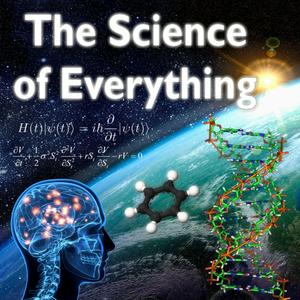An overview of Magnetic Resonance Imaging (MRI), beginning from the basic physics of nuclear magnetic resonance, and covering the use of radiowaves to excite nuclear spin states, and the T1 and T2 modes of relaxation. We then explore how these phenomena are used to produce 3d images, including magnetic field gradients, frequency encoding, phase encoding, and Fourier transforms. We conclude with a discussion of functional imaging, including the haemodynamic response, the BOLD signal, echo planar imaging, and the steps of preprocesing. Recommended pre-listening is Episode 14: Principles of Quantum Mechanics, and Episode 61: Magnetism.
If you enjoyed the podcast please consider supporting the show by making a PayPal donation or becoming a Patreon supporter.
https://www.patreon.com/jamesfodor
https://www.paypal.me/ScienceofEverything


